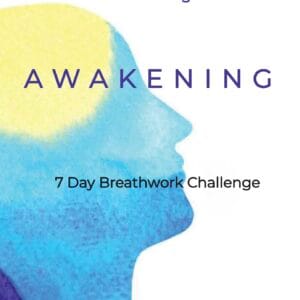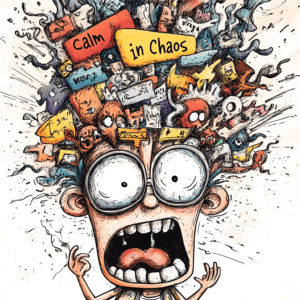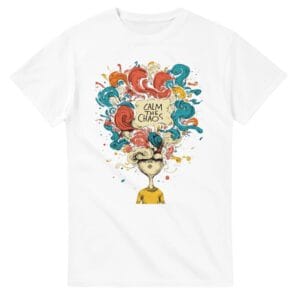
Addiction, Alcoholism, and Alcoholic Tendencies: Understanding the Spectrum and Finding Your Path to Recovery. Alcohol consumption exists along a complex spectrum, from casual use to full-blown dependency. Understanding the distinctions between alcoholic tendencies, alcoholism, and addiction isn’t just academic—it’s a lifeline. These differences play a crucial role in determining the right treatment path, setting realistic recovery goals, and fostering self-awareness. Whether someone needs early intervention, medical treatment, or long-term behavioural support, recognizing where they fall on this spectrum is the first step towards meaningful change. For anyone questioning their relationship with alcohol, this clarity can illuminate the road to recovery, guide effective intervention strategies, and inspire meaningful change.
Alcohol misuse is rarely a linear issue; it often unfolds in cycles of denial, realization, action, and relapse. Each stage brings its own challenges and requires different tools for support. Recognizing where you are on this spectrum is not about self-judgment—it’s about building a foundation for growth. From identifying early warning signs to embracing long-term recovery, every step forward is valuable.
In this post, we’ll break down these terms, explore their impacts, and share personal reflections on navigating this challenging landscape. Whether you’re here for yourself, a loved one, or simply to deepen your understanding, you’re in the right place.
What Are Alcoholic Tendencies? Recognizing Early Warning Signs
Definition: Alcoholic tendencies describe recurring patterns of alcohol use that raise concerns but have not yet developed into full physical or psychological dependence.
Signs of Alcoholic Tendencies:
- Regular binge drinking
- Using alcohol as an emotional escape
- Struggling to control intake in social settings
- Relying on alcohol to manage stress or anxiety
- Experiencing mild withdrawal symptoms, such as irritability or sleep issues
Impact on Life and Relationships: These patterns can gradually erode emotional stability, strain family dynamics, and create cycles of guilt and regret. For example, a parent who frequently drinks to excess might miss important family events or become emotionally unavailable, leading to feelings of abandonment in their children and tension with their partner. Over time, unchecked tendencies may evolve into dependency, making intervention more challenging.
Example: Someone who drinks excessively every weekend but abstains during the week may exhibit early-stage alcoholic tendencies.
Preventative Steps:
- Seeking therapy or counseling
- Exploring Healthier Coping Mechanisms
- Establishing boundaries for alcohol consumption
- Building supportive social circles
Long-Term Risks: If left unaddressed, these patterns can escalate into dependency or addiction, causing significant physical and emotional harm. Early intervention isn’t a sign of weakness—it’s a courageous step towards reclaiming control.
What Is Alcoholism? When Drinking Becomes Dependency
Definition: Alcoholism, or Alcohol Use Disorder (AUD), is a chronic medical condition characterized by an inability to regulate alcohol consumption despite harmful consequences.
Signs of Alcoholism:
- Physical withdrawal symptoms when not drinking
- Prioritizing alcohol over responsibilities and relationships
- Increased tolerance requires higher amounts to feel the same effects
- Inability to stop drinking despite repeated attempts
- Obsessive thoughts about alcohol
The Physical and Emotional Toll: Chronic alcohol abuse can cause liver damage, cardiovascular disease, neurological impairments, and heightened risks of mental health conditions such as depression and anxiety. It often exacerbates existing emotional trauma, making it harder to break free from the cycle.
Example: Someone who begins each day with a drink to manage withdrawal symptoms is likely struggling with alcoholism.
The Role of Denial: Denial is a powerful obstacle in addressing alcoholism. Many individuals rationalize their drinking patterns, believing they still have control, even as their health and relationships deteriorate.
Recovery Pathways:
- Medical detox programs
- Cognitive-behavioral therapy (CBT)
- Peer support groups like AA or SMART Recovery
- Ongoing accountability partnerships
Alcoholism is not a moral failing; it’s a medical condition. Seeking help is the first step toward healing, and professional support can provide the tools needed to rebuild a fulfilling life.
What Is Addiction? Beyond Alcoholism
Definition: Addiction is a chronic disorder characterized by compulsive substance use or behaviour despite negative consequences. While alcoholism is a specific form of addiction, the term extends to drugs, gambling, technology, and more.
Key Indicators of Addiction:
- Persistent cravings
- Increased tolerance
- Emotional dependency
- Neglecting responsibilities or hobbies
- Continued use despite consequences
Wider Scope of Addiction: Unlike alcoholism, addiction isn’t limited to substances. Behavioural addictions—such as gambling, social media use, or compulsive eating—activate the same reward pathways in the brain as substance abuse. Both forms of addiction can trigger dopamine releases, reinforcing compulsive behaviour and making it difficult to break free without intervention. This overlap in brain chemistry explains why behavioural and substance addictions often share similar patterns of cravings, withdrawal symptoms, and cycles of dependency.
Example: An individual who continues drinking despite severe health warnings and repeated attempts to quit may have transitioned into addiction.
Steps Toward Addiction Recovery:
- Holistic treatment approaches
- Addressing underlying trauma or triggers
- Establishing long-term support systems
- Developing healthy daily routines
Addiction recovery isn’t about willpower alone; it’s about building a support system, addressing root causes, and learning sustainable coping mechanisms.
Alcoholic Tendencies vs. Alcoholism vs. Addiction: What Sets Them Apart?
- Alcoholic Tendencies: Early warning signs without established physical dependence.
- Alcoholism: A medical condition marked by physical and psychological reliance on alcohol.
- Addiction: A broader disorder encompassing dependence on substances or behaviours.
Understanding where you or a loved one falls on this spectrum is not about labelling—it’s about finding clarity and choosing the right path forward.
Ian’s Reflection: Where I See Myself in This Journey
Drinking wasn’t always an issue for me—until it was. At first, it was easy to dismiss the growing reliance on alcohol as just blowing off steam or managing stress. But over time, the cracks began to show, and the consequences became harder to ignore. I wasn’t the guy cracking open a can first thing in the morning. My day always started with a good, strong cup of tea. But when alcohol was there, I’d drink it all.
Recovery isn’t linear. It’s messy, uncomfortable, and deeply personal. But every time I start again, I’m reminded: This path is worth walking.
Join Our Supportive Community: Mindful Sobriety Collective
Join our Mindful Sobriety Collective on Facebook at Mindful Sobriety Collective. Members can expect shared experiences, practical recovery tips, and a safe space to discuss challenges and victories.
Recovery isn’t just about stopping—it’s about building a life worth staying sober for.
On sale products
“Calm the Chaos” Graphic T-Shirt
Price range: £27.40 through £39.647-day breathwork challenge
£0.00Calm in Chaos: Ten Exercises for Managing Anxiety in the Modern Age
£9.99Calm The Chaos
Price range: £26.10 through £33.12Calm The Chaos
Price range: £20.00 through £37.56




